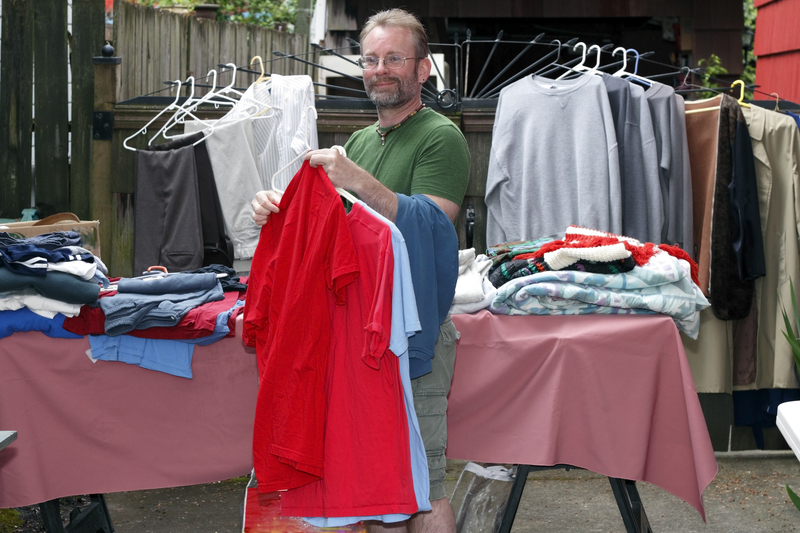Plan Your Skip Hire: Informed Dos and Don'ts
Are you gearing up for a big clean-out, home renovation, or landscaping project? Hiring a skip is the perfect solution for efficient waste management, whether for domestic or commercial purposes. However, to plan your skip hire effectively, there are crucial guidelines to ensure the process is cost-effective, eco-friendly, and compliant with local regulations. In this comprehensive guide, we unveil the dos and don'ts of skip hire so you can make informed decisions and avoid common pitfalls.

Why Is Planning Your Skip Hire Important?
Skip hire is more than booking a container and tossing in your rubbish. Failing to strategize can result in higher costs, legal troubles, and environmental hazards. Proper planning ensures you get a suitable skip size, follow legal requirements, dispose of waste responsibly, and save both time and money.
- Prevention of legal issues: Adhering to skip hire rules protects you from fines.
- Cost efficiency: Proper planning prevents over- or under-ordering the skip size.
- Environmental stewardship: Thoughtful disposal methods help you recycle and reduce landfill waste.
Skip Hire Dos: Essential Best Practices
By following these essential dos of skip hire planning, you can ensure a smooth and effective waste management experience:
1. Assess Your Waste Type and Volume
Estimating waste correctly is foundational. Skips come in various sizes (mini, midi, builder's, and roll-on roll-off), each catering to different project scales. Analyze the types--general household waste, garden debris, construction rubble--and estimate quantity accurately.
- Mini skips: Great for small home clearances or garden projects
- Midi skips: Suitable for kitchen or bathroom refits
- Builder's skips: Often used for major renovations and bulky waste
- RORO skips: Designed for industrial or large commercial projects
*Tip: If undecided, consult your skip hire provider for professional advice.
2. Compare and Choose a Reputable Skip Hire Company
Not all skip hire services are created equal. Search for licensed companies with proven reliability, transparent pricing, and positive customer reviews. Ask about:
- Waste segregation capabilities
- Permit arrangements
- Recycling rates and environmental policies
An experienced skip hire company will help you with correct placement and compliance.
3. Consider Skip Placement
Location matters! Place your skip on private land like a driveway if possible. If it must go on a public road, you'll need a permit from your local council. Confirm if any parking restrictions or narrow confines might make delivery difficult.
- Clear access paths for delivery and collection vehicles
- Do not block pedestrians, driveways, or fire exits
4. Understand Skip Permits
Obtaining a skip permit is mandatory if your skip will be on public property. Your chosen skip company may handle this, or you might need to apply yourself. It usually takes a few days to process and involves a fee.
Don't risk fines: Never place a skip on the road without a proper permit in place.
5. Maximize Your Space
Packing your skip efficiently will save space, reduce costs, and minimize your environmental impact. Break down bulky items, flatten boxes, and fill gaps with smaller debris.
- Place heavy materials at the bottom to stabilize the skip
- Work logically to avoid unused air gaps
- Do not build up waste above the skip's rim--it's illegal and unsafe
6. Be Aware of Prohibited Items
Not all waste can go in your hired skip. Know what's allowed--typically, general household waste, wood, plastics, garden waste--and what's not:
- Asbestos
- Batteries
- Electrical appliances (WEEE waste)
- Gas cylinders
- Tyres
- Paint, solvents, liquids
- Hazardous or toxic substances
Check your skip company's policies for the full list of prohibited items.
7. Respect the Environment
Your environmental responsibility matters! Separate recyclables where possible and ask your provider about their waste processing and recycling rates. Many companies now sort waste at their depots, ensuring that as little as possible ends up in landfill.
8. Schedule Skip Delivery and Collection Wisely
Decide when you need the skip and for how long. Avoid unnecessary charges by planning when the skip is required on site and when it should be collected. Most companies charge per week or per hire duration, so timing everything well ensures cost efficiency.
9. Double-Check with Your Local Council
Local regulations on skip hire can vary--including rules on permits, placement, waste types, and collection times. Clear any doubts by consulting your local council before finalizing your skip hire plans.
10. Ensure Safety Around the Skip
For households, especially those with children or pets, safety is paramount. Keep the area around the skip clear, consider using safety lights at night if on a public road, and never let anyone climb into or play near the skip.
Skip Hire Don'ts: Common Mistakes to Avoid
Even the savviest DIYer can slip up when organizing their skip hire. Avoid these key skip hire mistakes to keep your project stress-free and legal:
1. Don't Overfill the Skip
Overfilled skips are a major issue. Not only do they create health hazards, but companies are forbidden by law from collecting skips with debris above the rim. This leads to additional fees and potential delays.
2. Don't Place Prohibited or Hazardous Materials in the Skip
Trying to dispose of banned items (e.g., asbestos, paints, fridges) in a regular skip is illegal and may result in fines or refusal of collection. Such items require specialized disposal.
3. Don't Forget About Permits
Placing your skip on public property without the proper permit is a common and costly mistake. Always check--and apply in advance if necessary.
4. Don't Choose the Wrong Skip Size
Both underestimating and overestimating your skip size leads to avoidable expense and inconvenience. Too small, and you'll need a second skip; too large, and you'll pay for wasted capacity. Ask your provider for sizing guides or recommendations.
5. Don't Ignore Access Requirements
If access for delivery vehicles is limited--narrow streets, overhanging trees, low bridges, etc.--alert your hire company in advance. Last-minute complications can incur cancellation fees or missed delivery slots.
6. Don't Allow Others to Fill Your Skip
Unattended skips often attract local fly-tippers or neighbors sneaking in waste. If on a public road or easily accessible area, consider covering the skip overnight.
7. Don't Flout Loading Safety
Never exceed the weight restrictions, and ensure items are loaded securely. Avoid sharp objects sticking out or items likely to fall out or injure passersby.
8. Don't Delay Collection Requests
An overstayed skip can inconvenience neighbors, attract unauthorized dumping, and, if permitted, may incur extra charges. Organize prompt collection to avoid these complications.

Frequently Asked Questions About Skip Hire Planning
How Do I Know What Size Skip to Hire?
Assess your waste type and quantity, and consult your skip provider's guidelines or advisors. It's better to slightly overestimate if unsure, as underestimating may mean booking an additional skip, doubling costs.
What Can I Not Put in a Skip?
Items prohibited in skips usually include:
- Asbestos and hazardous building materials
- Chemicals and oils (e.g., engine oil, paint tins)
- Electrical items (TVs, microwaves, fridges)
- Batteries, tyres, and gas canisters
- Liquids, including food waste (in most cases)
Do I Need a License or Permit for Skip Hire?
If your skip is placed on public land (such as a street), you'll require a skip permit from your local council. Private driveways or gardens do not need permits.
How Long Can I Keep My Skip?
The standard hire duration ranges from 7 to 14 days, but most companies offer extensions for an added fee. Coordinate your project timeline with your waste disposal to maximize efficiency.
What Happens to My Rubbish After Collection?
Reputable skip companies recycle as much waste as possible. Items are sorted at their depot, and recyclable materials are separated before the remainder is sent to landfill. Ask about your provider's recycling rates.
Conclusion: Smart Planning = Stress-Free Skip Hire
With the right preparation, planning your skip hire is straightforward and rewarding. Choose a reputable skip hire firm, understand your obligations, respect local regulations, and be mindful of environmental responsibilities. By following these informed dos and don'ts of skip hire, you'll ensure an efficient, legal, and eco-friendly waste removal experience--helping you focus on the job at hand.
Remember, the key to a successful skip hire is informed planning and responsible action. Whether you're clearing a garage, remodeling a kitchen, or managing a major site, knowing what to do (and what to avoid) will keep your project on track, your costs in check, and our environment protected.
Ready to kickstart your project? Plan your skip hire today with confidence, and enjoy hassle-free rubbish removal!